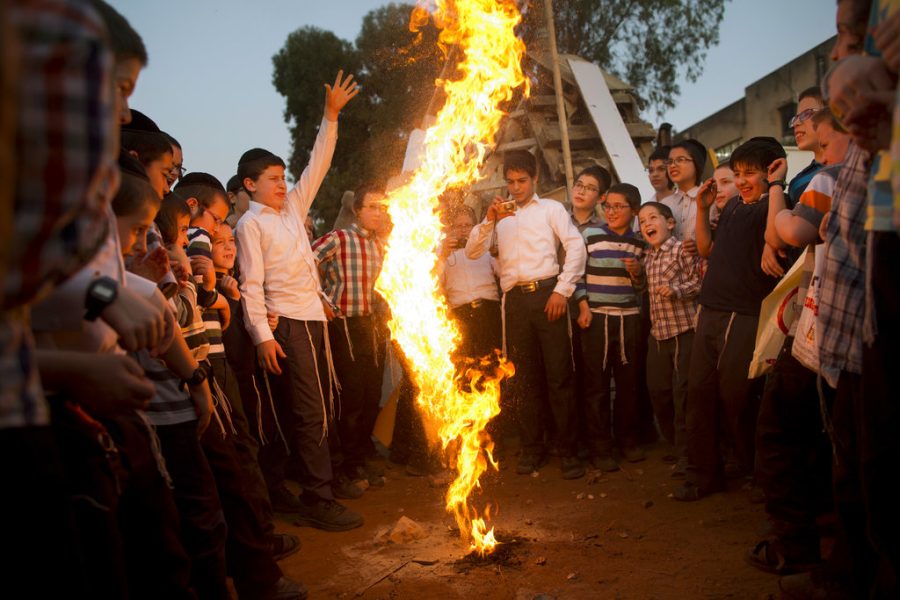Lag Ba’Omer – A Jewish Holiday You Didn’t Know About
Ultra-Orthodox Jewish youths play with fire during the Jewish holiday of Lag Ba’Omer in Bnei Brak, Israel, Wednesday, May 2, 2018. The holiday marks the end of a plague said to have decimated Jews during the Roman times. (AP Photo/Oded Balilty)
Today on this warm spring day marks Lag Ba’Omer, a Jewish holiday with a mystical and soldierly significance. The holiday marks the 33rd day of a mournful period between Passover and Shavuot known as the Counting of The Omer, which is a time where religious Jews refrain from certain happy customs, such as marriage and haircuts.
There are a few interpretations for why the holiday is celebrated, with some anthropologists saying that a period of retrait is common in many cultures to symbolize concerns over growing crops. The most common interpretation for the day is cited in the Talmud (the corpus of Jewish law), which relates to the legend of Rabbi Akiva (1st century rabbi known for preserving Jewish law and tradition after the temple’s destruction), and his 1000 students who were wiped out in a plague which stopped on Lag Ba’Omer.
The more soldierly interpretation of the holiday is that Rabbi Akiva, whose students backed a rebellion, led by a Jewish hero named Simon Bar Kokhba, against the Roman Empire, had won a momentary victory on the day. The holiday is seen in Israel today as a celebration of the Jewish “warrior spirit.”
Lastly, the mystical significance of the holiday comes from a student of Akiva named Simon Bar Yokhai, who was said to have continued defying the Romans, hid in a cave from them for 12 years only studying the Torah (the holiest book in Judaism). Yokhai is also known to have founded the tradition of Jewish mysticism itself, known as Kabbalah.
Today, most celebrations of the holiday are in Israel, where the traditional bonfires are lit, and many Orthodox Jews take a pilgrimage to the tomb of Simon Bar Yokhai. Many school children go on picnics and play with bows and arrows, to honor the battles fought by Jews against the Romans. Finally, many couples get married on the happy day.


